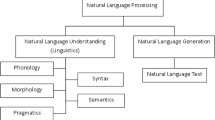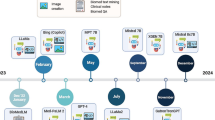Abstract
English grammar teaching is an indispensable part of language teaching, and learners’ mastery and use of grammatical knowledge have a positive and important role in obtaining speech ability. Aiming at the problem of characteristic processing in business English parallel corpora in business contracts, this paper proposes a similar-Apriori mining semantic processing algorithm under two-stage high expectation weight business English parallel corpus item set. First of all, aiming at the problem that in the traditional hierarchical mining algorithm, only business English parallel corpus item set upper bound is used, which has not ideal effect for the high expectation weight problem, the downward closure characteristics of hierarchy mining algorithm is designed, and the proof procedure is given, this characteristic can effectively reduce the processing quantity of the candidate business English parallel corpus while ensuring the accuracy. Secondly, the two-stage data mining process is constructed, in the first stage, a high expectation weight business English parallel corpus item set is obtained for a set of candidate business English parallel corpus item set based on a hierarchical search method, in the second stage, the database is scanned again to obtain high expectation weight of business English parallel corpus item set, so as to complete the data mining process. Finally, the effectiveness of the algorithm is verified through simulation experiment.
Similar content being viewed by others
References
Smirnov, S., Weidlich, M., Mendling, J., et al.: Action patterns in business process model repositories. In: Proceedings of the International Joint Conference on Service-Oriented Computing. Springer, 2009, pp. 115–129 (2009)
Thanh, T.T., Chen, F., Kotani, K., et al.: An Apriori-like algorithm for automatic extraction of the common action characteristics. Vis. Commun. Image Process. IEEE 2013, 1–6 (2013)
Marshall, J.A., Luthcke, S.B.: Modeling radiation forces acting on TOPEX/Poseidon for precision orbit determination. J. Spacecr. Rockets 31(1), 99–105 (1992)
Bradley, M.M., Codispoti, M., Sabatinelli, D., et al.: Emotion and motivation II: sex differences in picture processing. Emotion 1(3), 300 (2001)
Lockhart, R.S., Craik, F.I.: Levels of processing: a retrospective commentary on a framework for memory research. Canad. J Psychol. (Rev. Canad. Psychol. 44(1), 87–112 (1990)
Sander, D., Grandjean, D., Pourtois, G., et al.: Emotion and attention interactions in social cognition: brain regions involved in processing anger prosody. Neuroimage 28(4), 848–858 (2005)
Koelsch, S., Gunter, T.C., Wittfoth, M., et al.: Interaction between syntax processing in language and in music: an ERP study. J. Cognit. Neurosci. 17(10), 1565–1577 (2005)
Mckenna, F.P., Sharma, D.: Intrusive cognitions: an investigation of the emotional Stroop task. J. Exp. Psychol. Learn. Mem. Cognit. 21(6), 1595–1607 (1995)
Hamann, S.B.: Level-of-processing effects in conceptually driven implicit tasks. J. Exp. Psychol. Learn. Mem. Cognit. 16(6), 970–977 (1990)
Lewis, P.: Far from a nihilistic crowd: the theoretical contribution of radical subjectivist Austrian economics. Rev Austrian Econ. 24(2), 185–198 (2011)
Edmiston, E.K., Blackford, J.U.: Childhood maltreatment and brain response to novel faces in adults with inhibited temperament. Psychiatry Res. 212(1), 36 (2013)
Nanda, S., Panda, A.K.: An empirical assessment of export led growth hypothesis in the context of Indian economy. Ital. J. Zool. 64(2), 117–124 (2011)
Nanda, S., Panda, A.K.: An empirical assessment of export led growth hypothesis in the context of Indian economy. Ital. J. Zool. 64(2), 117–124 (2011)
Acknowledgement
A Study of Spatial Narrative in American Writer Tony Morrison’s Novels, Foundation of China under Grant No. 17WWE366 (Philosophy and Social Science Research Project of Heilongjiang Province).
Author information
Authors and Affiliations
Corresponding author
Rights and permissions
About this article
Cite this article
Xin, L. Apriori semantic processing orienting at the business English parallel corpus characteristics in business contract. Cluster Comput 22 (Suppl 1), 2263–2271 (2019). https://doi.org/10.1007/s10586-018-2722-x
Received:
Revised:
Accepted:
Published:
Issue Date:
DOI: https://doi.org/10.1007/s10586-018-2722-x




